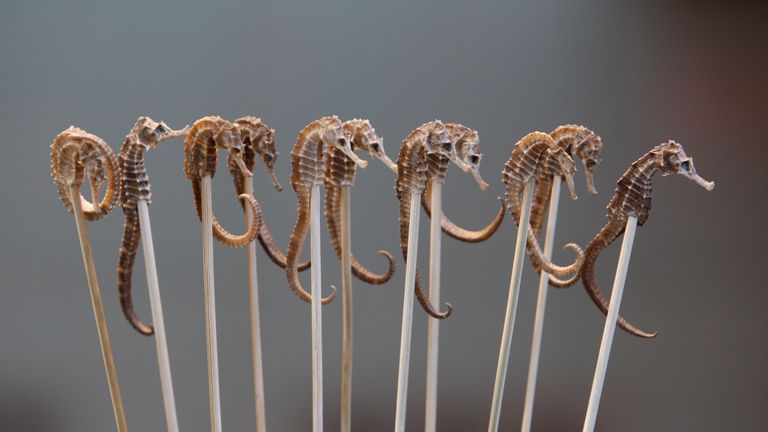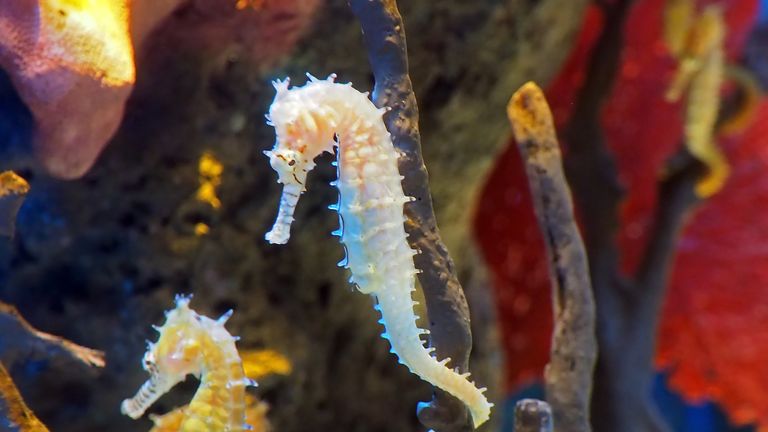Seahorse kebabs sold in Thai market spark anger
A vendor was selling the seahorses to Chinese tourists who believe the fish can cure erectile dysfunction.
Wednesday 24 January 2018 15:42, UK
Seahorse kebabs on sale at a popular tourist market in Thailand have sparked widespread condemnation.
The small marine animals were being sold grilled on sticks for 150 baht (£3.36) each in Pattaya Floating Market, south of Bangkok.
Shocked tourists posted pictures of the delicacy on social media which prompted an investigation into the stall selling them.
The market's manager, Wichai Thanessanurak, admitted he had not carried out the proper checks and controls on all products being sold.
He said selling seahorses to eat tainted the town's tourism sector, something it relies heavily on.
On Wednesday the vendor was banned from the market.
Paisri Worawong said she had been selling the fish for about a month to Chinese tourists who believe eating seahorses can give them energy and cure erectile dysfunction.
She had been buying the fish from a medicine shop in Bangkok for 80 baht (£1.80) and selling them for a marked-up price.
Ms Worawong told Thai media: "I did it because of my ignorance."
She is not facing legal action because seahorses are not protected in Thailand.
However, the government is signed up to the Convention on International Trade in Endangered Species of Wild Fauna and Flora which banned the import or export of seahorses in 2016.
Seahorses are essential to maintain balance of the entire marine food chain, Thon Thamrongnawasawat, a marine ecologist told the SCMP.
"Seahorses are important to the marine ecosystem because they help balance the quantity of plankton on the seabed," he said.
"If they keep being caught in such large numbers and sold commercially it will affect the entire marine food chain."
The kebab incident has prompted the Thai Fisheries Department to seriously consider banning the fishing of seahorses.
Officials were sent on Tuesday to find out whether the seahorses being sold were farmed or fished, deputy director general Umaporn Pimolbutr said.
Ms Umaporn added: "It is not a protected species yet.
"Right now we can't press any charges against domestic traders but the department plans to issue a ban on fishing for seahorses in all Thai waters soon.
"This means fishermen and trawlers will not be able to target them primarily. They can only sell them if they are caught accidentally."
Research has found hundreds of thousands of seahorses are fished mistakenly by Thai trawlers each year.




